AITA for telling my estranged sister and our parents that she and her kids are not my problem?
Seven years ago, her world shattered in the most unimaginable way. Just ten weeks into her pregnancy, she suffered a devastating miscarriage, only to return home and find her husband entwined in betrayal with her own sister.
The raw pain of loss was eclipsed by the cruelest of betrayals, leaving her drowning in heartbreak and a resolve to sever ties with the two who had shattered her trust.
In the aftermath, she chose a path of fierce independence and self-preservation, walking away from a marriage stained with deceit with nothing but her dignity intact.
Despite family hopes for reconciliation, she shut the door on the life intertwined with her sister and ex-husband, refusing to be tethered to a past marred by pain.
It was only with distance that she found the space to heal and eventually open her heart to a new chapter with someone who valued her worth.

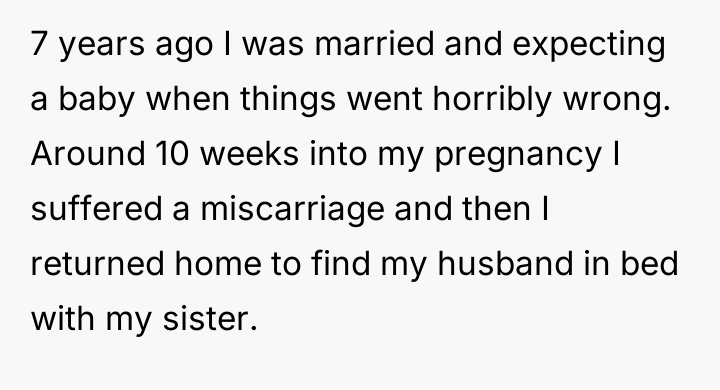
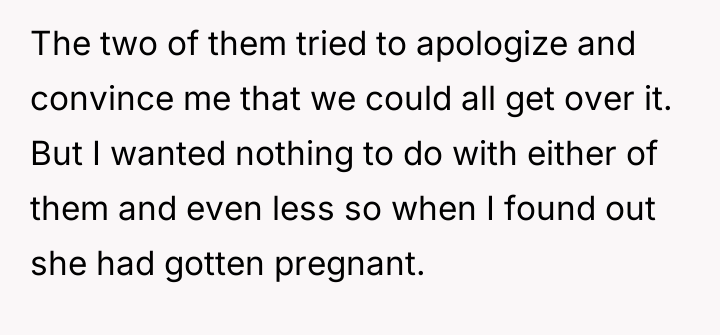

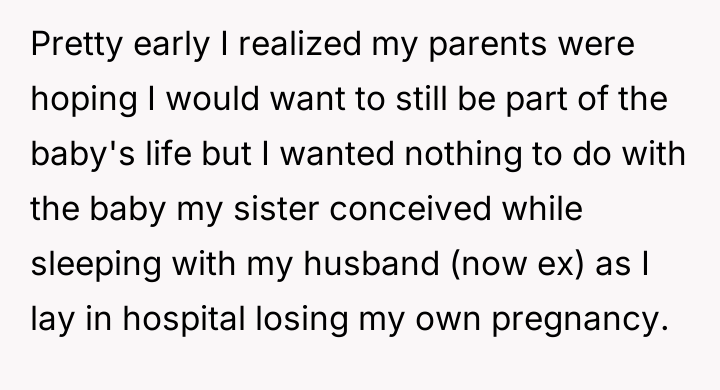
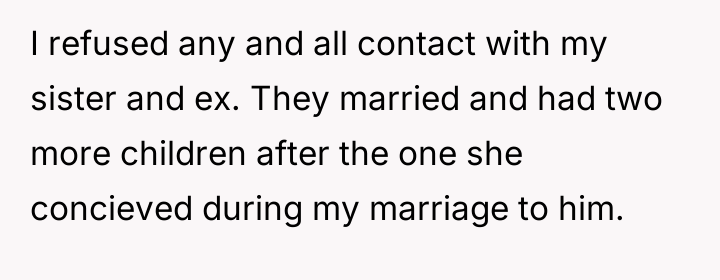



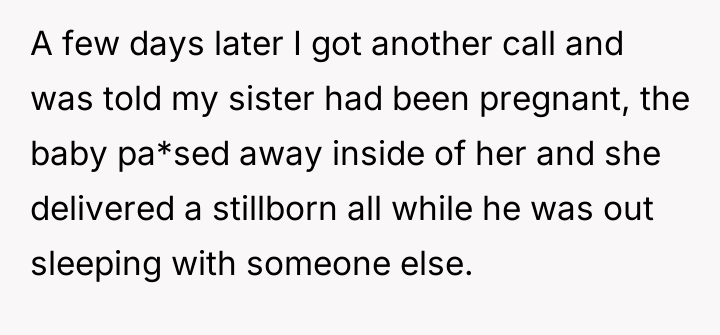
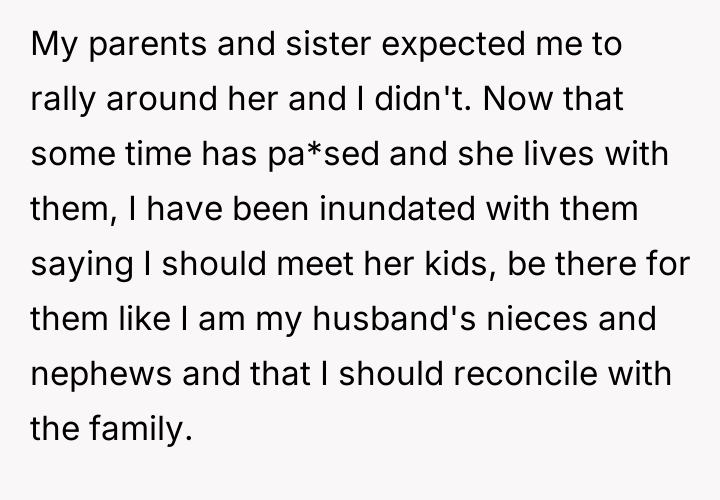
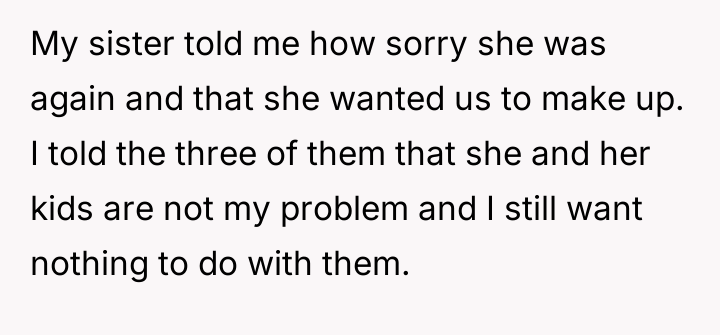
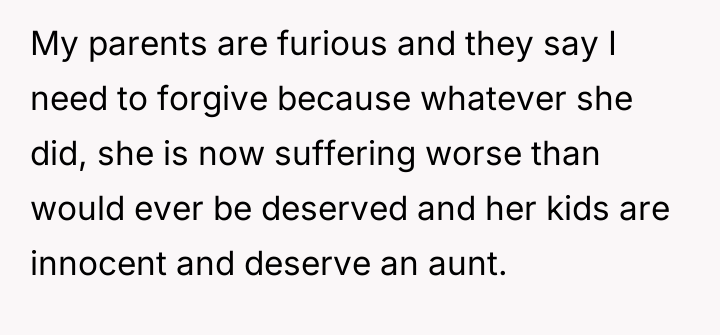
Subscribe to Our Newsletter
No spam, unsubscribe anytime. Privacy Policy
Strong Takes and Sharper Words from the Crowd:
Support, sarcasm, and strong words — the replies covered it all. This one definitely got people talking.
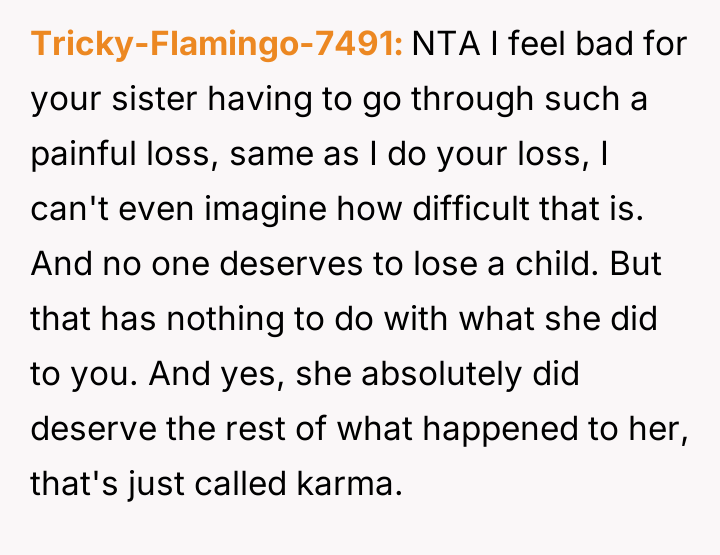
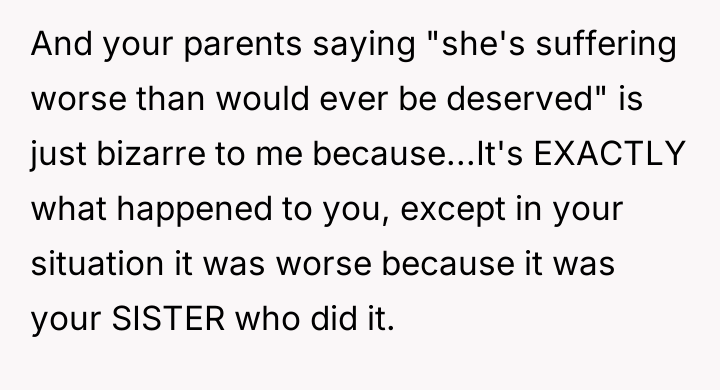
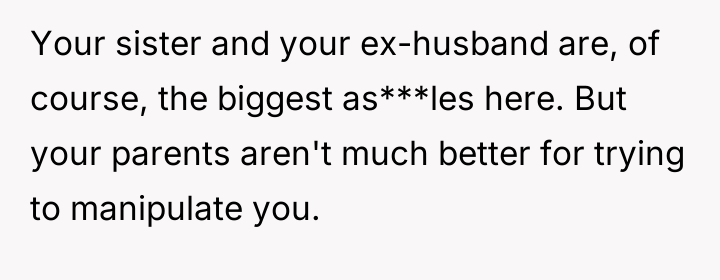
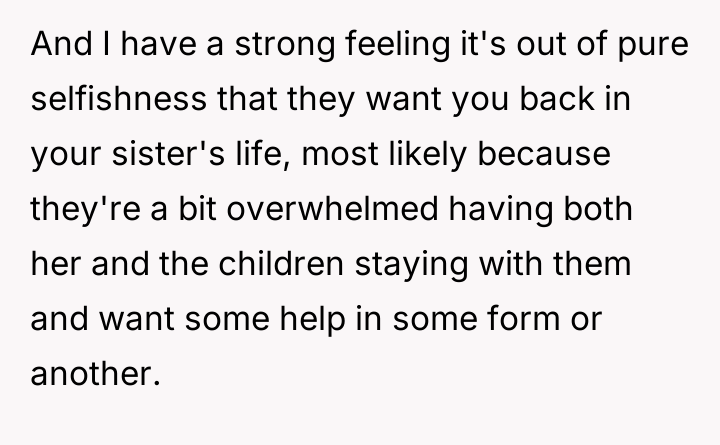



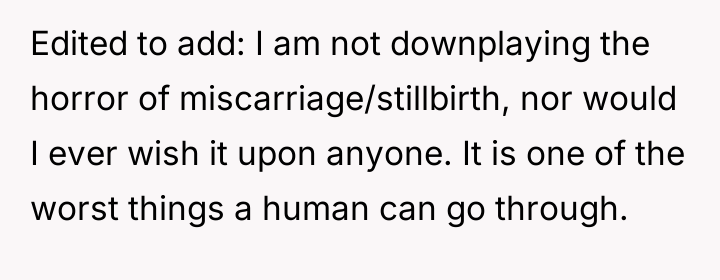


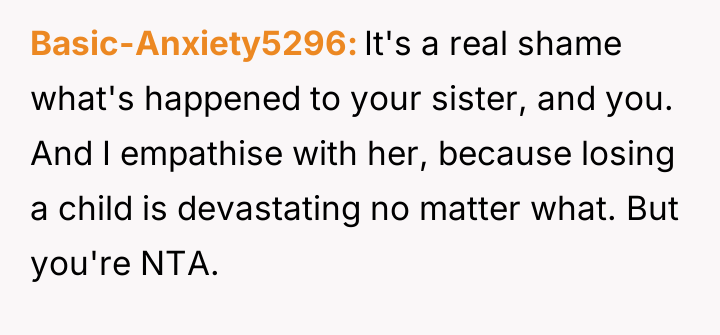
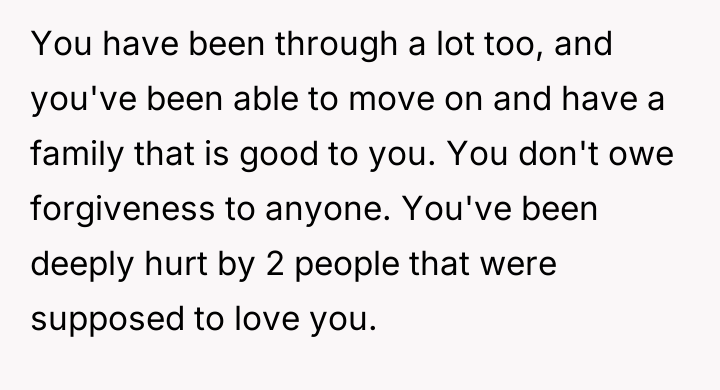



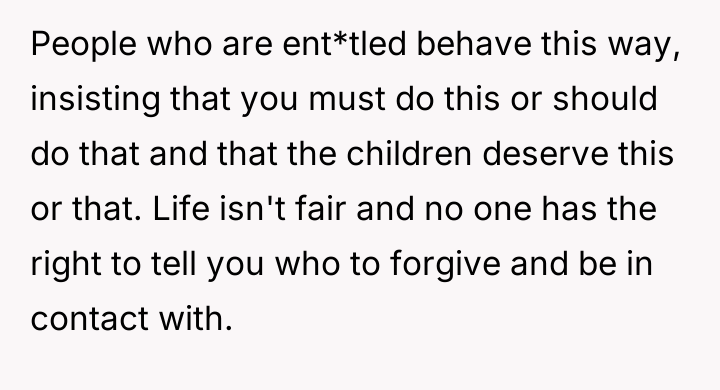







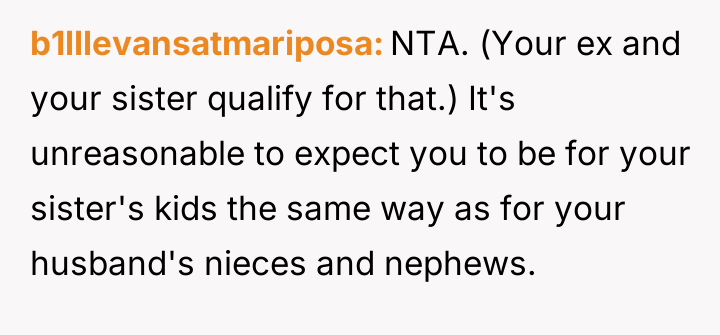
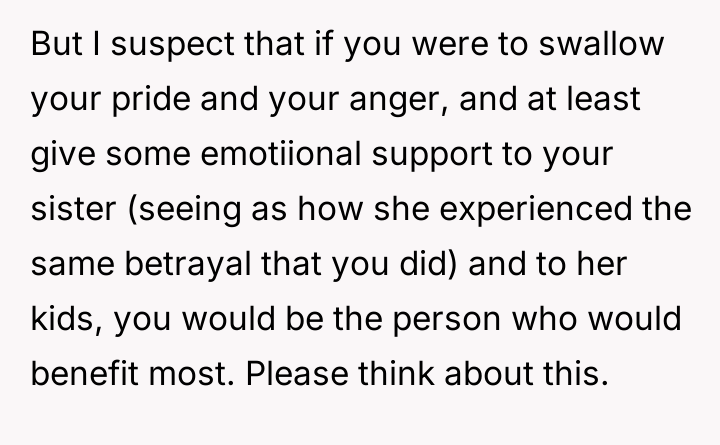

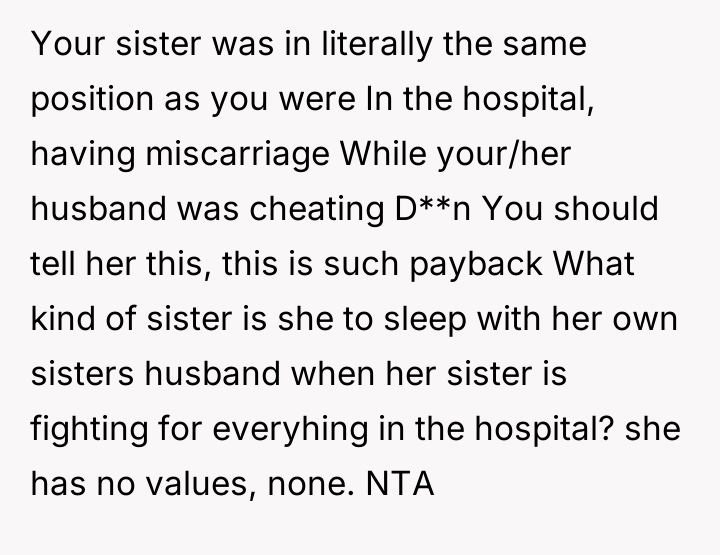



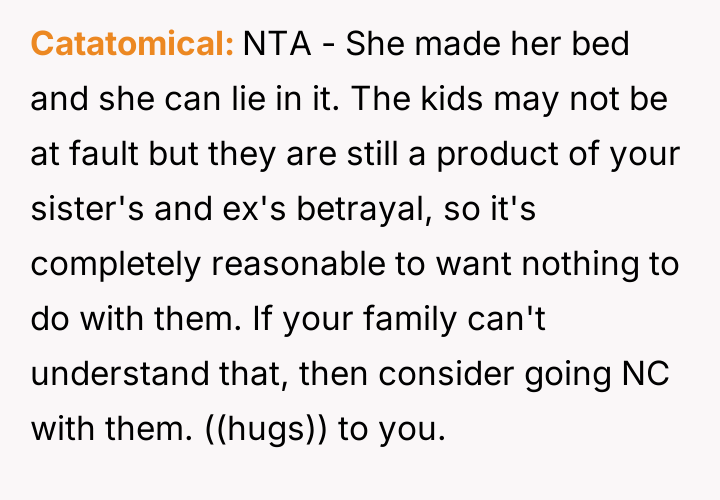
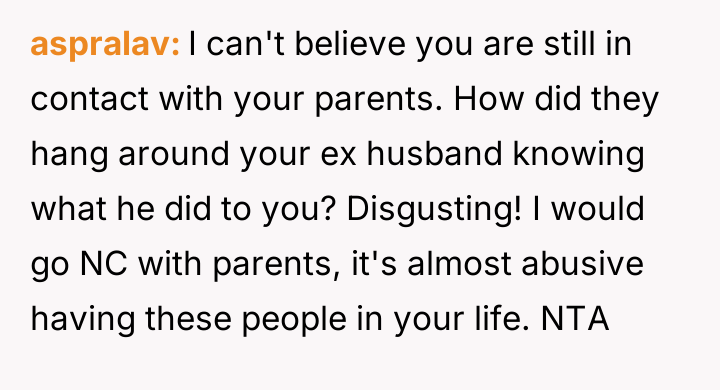
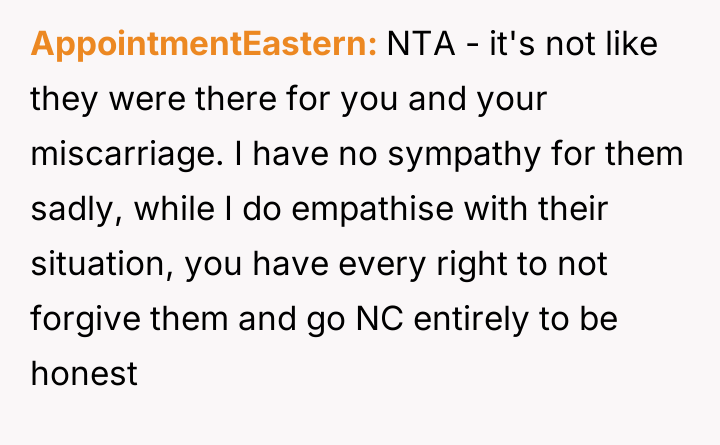
The original poster (OP) experienced a profound betrayal seven years ago involving her husband and sister, which led to the immediate end of her marriage and a complete severing of ties with her family of origin.
Currently, the central conflict revolves around the OP's refusal to offer support or reconciliation to her sister following a recent stillbirth, an expectation strongly enforced by her parents who argue that suffering warrants forgiveness and that innocent nieces and nephews deserve an aunt.
Given the extreme nature of the original offense and the OP's establishment of a new, positive family unit, the debate centers on whether the OP is obligated to prioritize her family's current emotional needs and perceived moral duty to forgive over her own long-term emotional safety and boundaries.
Should the OP maintain her distance from her sister and her children, or does the recent tragedy create a moral imperative to reconnect with the sister and her existing family?

